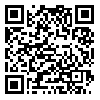Sun, Feb 22, 2026
[Archive]
Volume 32, Issue 1 (2-2018)
Med J Islam Repub Iran 2018 |
Back to browse issues page
Download citation:
BibTeX | RIS | EndNote | Medlars | ProCite | Reference Manager | RefWorks
Send citation to:



BibTeX | RIS | EndNote | Medlars | ProCite | Reference Manager | RefWorks
Send citation to:
Arabloo J, Tourani S, Ravaghi H. Application of policy analysis frameworks in tobacco control research: A systematic review of qualitative literature . Med J Islam Repub Iran 2018; 32 (1) :304-311
URL: http://mjiri.iums.ac.ir/article-1-4689-en.html
URL: http://mjiri.iums.ac.ir/article-1-4689-en.html
Department of Health Services Management, School of Health Management and Information Sciences, Iran University of Medical Sciences, Tehran, Iran. , ravaghih@gmail.com
Abstract: (5389 Views)
Background: Tobacco consumption is still considered as the first preventable cause of death in the world. In order to influence tobacco policy process, researchers and policymakers must use frameworks of policy-making to understand the process to provide them insights for influence the process. This systematic review aims to review the application of policy analysis frameworks in the field of tobacco control.
Methods: A systematic search for articles was performed using four databases (Ovid Medline, Scopus, Cochrane Library, and PubMed) up to December 19, 2016. The articles were selected based on inclusion and exclusion criteria. All research studies focusing on tobacco policy and on one or more specified frameworks of policy analysis included in this study. Finally, thematic analysis was used to synthesize the findings.
Results: 17 studies based on eligibility criteria were included in this study. The findings of this study showed that most of the studies were in North America, published in the Health journals, conducted to analyze the national and state policies, focused on analyzing agenda-setting phase. Multiple streams model was the most widely used framework within the literature. Few studies had used advocacy coalition framework. From the three agenda setting frameworks and theories (MSF, PEF, ACF), the ACF framework is the most detailed framework in terms of elements and factors affecting the dynamics of political sub-system the reasons for models selection and suitability for the study was noted only in a small number of studies. The results of this study showed underuse and the incomplete or improper use of policy analysis models and frameworks in the field of tobacco research.
Conclusion: The study showed that a number of theories and frameworks have been used but their use was limited and have significant methodological weaknesses.
Methods: A systematic search for articles was performed using four databases (Ovid Medline, Scopus, Cochrane Library, and PubMed) up to December 19, 2016. The articles were selected based on inclusion and exclusion criteria. All research studies focusing on tobacco policy and on one or more specified frameworks of policy analysis included in this study. Finally, thematic analysis was used to synthesize the findings.
Results: 17 studies based on eligibility criteria were included in this study. The findings of this study showed that most of the studies were in North America, published in the Health journals, conducted to analyze the national and state policies, focused on analyzing agenda-setting phase. Multiple streams model was the most widely used framework within the literature. Few studies had used advocacy coalition framework. From the three agenda setting frameworks and theories (MSF, PEF, ACF), the ACF framework is the most detailed framework in terms of elements and factors affecting the dynamics of political sub-system the reasons for models selection and suitability for the study was noted only in a small number of studies. The results of this study showed underuse and the incomplete or improper use of policy analysis models and frameworks in the field of tobacco research.
Conclusion: The study showed that a number of theories and frameworks have been used but their use was limited and have significant methodological weaknesses.
Type of Study: Review Article |
Subject:
Health
Send email to the article author
| Rights and permissions | |
 |
This work is licensed under a Creative Commons Attribution-NonCommercial 4.0 International License. |







